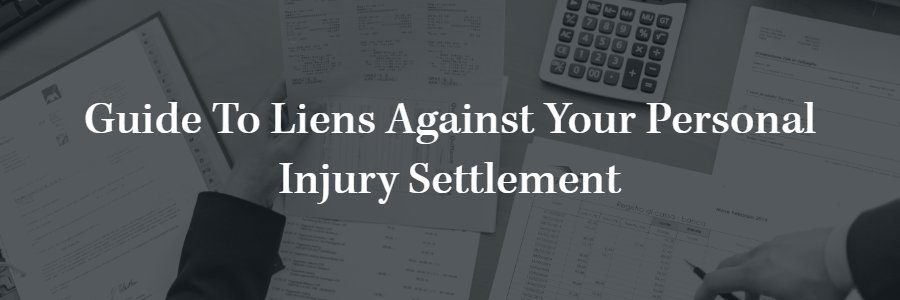Nobody wants to hear that they have a lien against them, especially if they are expecting to receive money through a personal injury settlement. However, in personal injury cases, there are various scenarios in which other parties can claim a portion of your settlement money through a lien. Personal injury settlement liens are not uncommon. Here, we want to discuss how these liens work and why they are necessary in the first place.
What is a Settlement Lien?
A lien is defined as a court order placed on a person’s property to satisfy a debt they owe to another person or entity. In the context of a settlement in a personal injury case, the “personal property” that the lien is against will be the settlement award amount. Any third-party seeking to put a lien on a personal injury settlement must file a lawsuit through the court system for the lien to be valid.
Can health insurance companies put a lien on my settlement?
Yes, personal injury settlement liens may actually be a part of the health insurance plan’s policy language. These plans often create the right to assert a medical lien on part of the injured person’s settlement. Personal injury settlement liens are often made by various types of insurance carriers. This can include workers’ compensation insurers, personal private health insurers, the government (through Medicaid and Medicare), and auto insurance carriers.
Why is a lien necessary?
It should come as no surprise that personal injury cases often take long periods of time to resolve. This is particularly true for cases that are going to be settled through a personal injury trial, as opposed to being settled through insurance carriers. Unfortunately, this can leave personal injury victims in a bind, especially when they need medical care in order to make a recovery. A personal injury victim cannot afford to wait until they receive settlement money to pay for the medical care that they need immediately. Let us look at a scenario of how a personal injury settlement lien could apply.
Example of Liens
Suppose Jack sustains a severe back injury in a car accident caused by Rebecca. However, Rebecca’s insurance carrier argues that Rebecca did not cause the crash, forcing Jack and his attorney to file a lawsuit in order to recover the compensation he needs to make a full recovery. However, the entire personal injury litigation process can take months or even years to conclude.
Jack cannot wait months for years to be able to afford the medical care needed for him to treat his back injury. In the interim, his personal insurance carrier may cover the costs of treatment, but they are not going to do so out of the kindness of their hearts. Yes, they will cover the cost of his treatment in accordance with the terms of the policy, but they will also likely put a lien on any potential settlement or jury verdict he is awarded in his case against Rebecca.
Suppose Jack’s insurance carrier pays for $100,000 in medical bills to treat his back injury. At the conclusion of his personal injury case against Rebecca, Jack is awarded $300,000 in total (medical bills, pain and suffering, etc.). If a medical lien was in place against this award amount, then Jack’s personal insurance carrier will have the right to recover the $100,000 that they spend on his medical bills.
